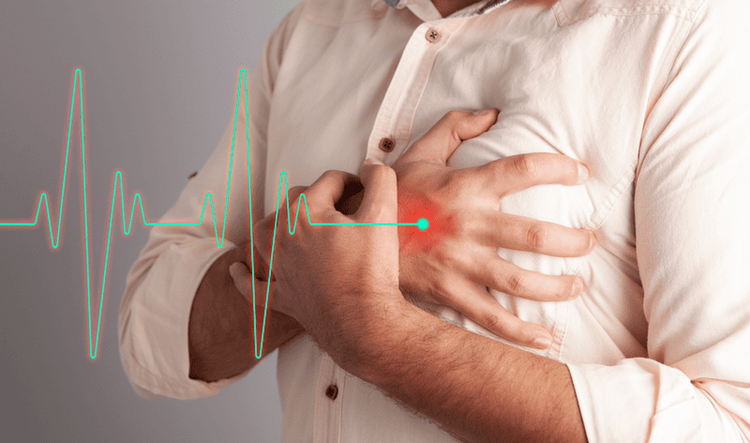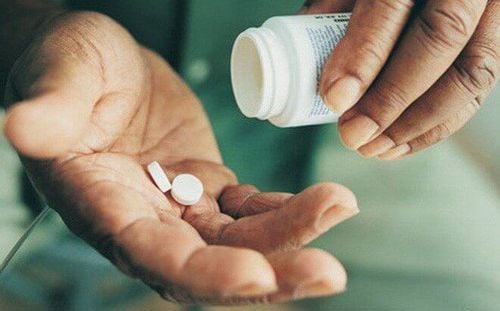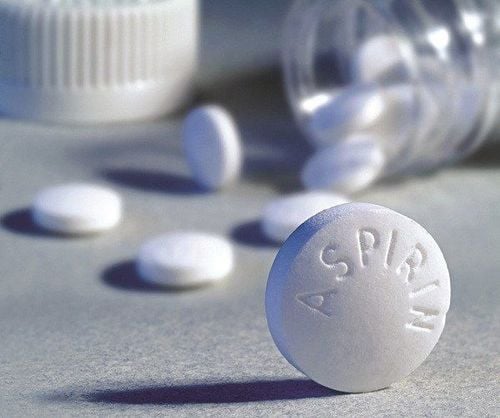This is an automatically translated article.
The article is professionally consulted by Master, Doctor Do Nguyen Thuy Doan Trang - Head of Extracorporeal Circulation Team - Cardiovascular Center - Vinmec Central Park International General Hospital. The doctor is a leading expert in Extracorporeal Circulation in cardiac surgery and cardiac resuscitation, Cardiovascular medical treatment.Hypertrophic cardiomyopathy is a heart muscle disorder caused by an abnormal thickening of the heart muscle wall. If hypertrophic cardiomyopathy is not treated promptly, the patient can face dangerous complications such as stroke, arrhythmia, myocardial infarction...
1. How to recognize hypertrophic cardiomyopathy?
The symptoms of hypertrophic cardiomyopathy are often unclear or asymptomatic, and the patient can still lead a normal life. However, this is also the reason why patients with hypertrophic cardiomyopathy cannot detect the disease at an early stage, leading to late treatment and increasing the risk of facing life-threatening complications. Hypertrophic cardiomyopathy is a major cause of sudden death in athletes and young adults.Depending on the severity of the disease, the symptoms of hypertrophic cardiomyopathy in each person are different, including some typical diagnostic signs of hypertrophic cardiomyopathy such as:
Chest pain, pain increases when physical activity. Shortness of breath, especially with exertion. Or fainting, dizziness, lightheadedness when doing heavy work, physical activity or sudden change of position. Frequent palpitations or a feeling of fluttering in the chest or rapid heartbeat.
2. Complications of hypertrophic cardiomyopathy

Arrhythmia: The impact of hypertrophic heart disease causes atrial fibrillation, ventricular tachycardia and ventricular fibrillation. Atrial fibrillation can increase the risk of blood clots forming in the coronary arteries of the heart and brain, causing a heart attack or stroke. Ventricular fibrillation and tachycardia are serious arrhythmias. Some cases have a high risk of causing cardiac arrest, sudden death.
Myocardial ischemia: Thickening of the heart muscle reduces blood flow through the coronary arteries, lack of blood to nourish the heart muscle and leads to fatigue, angina, especially when exertion.
Dilated cardiomyopathy: Due to the effects of an enlarged heart muscle, the ventricular chambers can be dilated to increase blood volume, which over time reduces the force of contraction of the heart muscle.
Mitral regurgitation: The mitral valve is the valve that separates the left ventricle and the left atrium. The heart muscle thickens, making the space for blood to circulate in the heart is reduced, blood flows through the heart valve quickly and rapidly, the pressure of the blood flow on the heart valve increases, affecting the functioning of the mitral valve. and cause mitral regurgitation.
Heart failure : The ability of the heart to pump blood to meet the body's needs gradually decreases due to the thickening of the heart muscle, if not timely intervention can lead to heart failure.
3. Treatment of hypertrophic cardiomyopathy
The goals of treatment for hypertrophic cardiomyopathy are to treat symptoms, prevent disease progression, and prevent sudden death in high-risk patients.Treatments for hypertrophic cardiomyopathy include: drug therapy, surgery, lifestyle changes, or some other intervention that helps control heart rate.
3.1 Beta-blocker therapy to reduce heart rate and preserve myocardium; Calcium channel blockers to prolong diastole and increase contractility; Medicines that control heart rate. Patients with atrial fibrillation are prescribed anticoagulants to reduce the risk of blood clots.

Please dial HOTLINE for more information or register for an appointment HERE. Download MyVinmec app to make appointments faster and to manage your bookings easily.














